#rather than the majority representation of it
Explore tagged Tumblr posts
Note
not the same anon and i agree w what u said but idk what u mean abt the discrimination mainly being fanon bc it is mentioned in the books that werewolves suffer heavily in poverty bc they are shunned from the wizarding world + anti werewolf legislations are brought up as well. i mean the general consensus abt werewolves seems to be that most ppl are scared of them and think they are dangerous, even out of the full moon
okay yeah i get how it came across that way lol i didn’t bother elaborating only sozz
so. what i meant was: the books give us like a…telling of lycanthropy discrimination, yeah? it tells us people are scared (altho tbf, it’s shown to a certain degree as well w greyback and all), tells us about the anti-werewolf legislation etc etc. what it shows is like. remus in shabby clothes. remus leaving hogwarts in poa before the angry howlers start. remus infiltrating werewolf packs. remus being a ‘privileged minority’ bc of his exclusive education and social capital.
what we don’t see is like. any visible barriers remus faces either bc a. wasn’t imp to narrative so wasn’t shown or b. he ran away before things could reach that point.
if we really wanna deconstruct remus’ identity & barriers he faced (which i don’t lol) we cannot ignore the fact that he was an outlier even amongst werewolves. for one, he was formally educated & is a wand user. two, he wasn’t living in ‘abject poverty’ (had a cottage and all, yeah?) three, had super privileged pureblood friends which affords a layer of protection to him. four, access to wolfbane (supposedly expensive and complicated to make). five, social capital in the form of dumbledore who got him a professor job. six, had a wife and child, got to make his own family.
and that’s just what we do know of him. i’m not even counting the potential happy family he could’ve had with hope and lyall or anything else. so honestly, what we know of remus particularly, it’s more privilege than not. i’m not discounting that werewolves face discrimination in the WW (considering how blood-obsessed it is, that’s impossible) i’m just saying remus had multiple shields from the worst of it.
#it’s like. just bc i don’t like deconstructing nuance doesn’t mean i can’t do it lol#i’m a humanities girlie yall#theory is my bread and butter#i just don’t like to bring it into my fiction#but if we really want to take remus’ lycanthropy into account as the allegory it is#then let’s go all the way yeah?#imo he’s more comparable to the super elite privileged minorities that every marginalised group has#rather than the majority representation of it#bc he had a lot of advantages#but hey. we don’t wanna talk about that do we?#(anon this is not @ u. you were very kind lol i was just thinking about the previous ask)#(i am merely. putting it all out there hehehe)#also!! the fanon vs canon thing#what i meant was. fanon has some very very detailed takes on the whole thing#conceptualising the existence of a werewolf from multiple axes#and so many fics i’ve read go super in depth re the discrimination they face#and remus also#but canon does nowhere near that#so. comparatively only. a lot of the discrimination that gets talked about seems conjecture to me imo#remus lupin#pen’s asks
11 notes
·
View notes
Text
a common theme in a lot of media is a character insisting "i'm not crazy" and eventually being proven right. but to be honest? i wish we had more characters who are canonically "crazy" without it being a bad thing or condemnation. characters who struggle with psychotic symptoms like delusions and hallucinations. characters who are unreliable narrators because they're not always sure what's real and what's in their head. characters who need help and support from their friends and loved ones to maintain their grip on reality and stay safe sometimes. psychotic characters who aren't just one-dimensional caricatures or harmful stereotypes but fully fleshed out, developed people with satisfying arcs and meaningful relationships. just more well written canon psychotic characters.
#🐉#like there are a few good ones out there (jinx arcane my beloved) but#the majority of canon psychotic characters arent very well written and#there just arent many. i have to headcanon most of them.#and i know that people whove never experienced psychosis can struggle to write psychotic characters who arent harmful representation#but if nobody ever tries nobody ever will. id rather people tried their best than didnt bother at all.#ALSO HARROWHARK NONAGESIMUS I CANT BELIEVE I FORGOT YOU BABYGIRL
4K notes
·
View notes
Text
other early buffy bi-coding includes: both her heart & spirit being initially coded as gay/bisexual (the writers weren’t sure which till tara came into the picture, & according to a semi-recent article, of which label pretty much until willow came out) & were intended as such, as the writers always knew one of them was going to come out.
#buffy summers#btvs#this is why i don’t consider the use of willow (a lesbian) to convey elements of buffy’s (a bisexual) sexuality biphobic whereas i sort of#do when that lens is applied to faith. in willow’s case her lesbianism is important like i cannot understate that but the writing choice#itself was influenced by the notion on part of the creators that willow being written as bisexual was the original intent & they changed#their minds because the lesbian representation was important & they felt with the way people thought of bisexuals it would make willowtara#get taken less seriously. so until willow came out she was very much a bi-coded character (STILL A LESBIAN & STILL MEANS HER & OZ WAS COMP#AS SOON AS THAT WAS CONFIRMED)#up until she came out- and it was largely if not entirely that before that point (bar the coming out scene) where she is used in any major#way to convey that aspect of sexuality with buffy- it becomes more general in terms of paralleling relationship struggle after that point#so willow being bi-coded & willow being used as a buffy sexuality figure were near entirely overlapping which negates the view of#bisexuality genuinely being part straight part gay rather than having to exist in dual spaces due to the way sexuality is dichotomized#also shout out to willow’s lesbianism for still retroactively working very well as a narrative way to convey that dual space even before the#choice to definitively make her such was made. her complicated lesbianism does so much for the themes girlie is carrying.#like a lot of people complain about that choice because of the fact we later got confirmation that it was made for reasons which were i#inconsiderate to both bisexuals & lesbians but ultimately willow as a lesbian works better overall than willow as a bisexual on a#storytelling level to me based on how sexuality in particular is ultimately positioned in the story by the end of s7#like when i talk about pre-coming out willow being bi-coded it isn’t to detract from her present lesbianism or say she should be bi- that’s#flat out lesbophobic & i don’t fuck with it- it’s just acknowledging a reality that influenced how she was written prior to coming out 100%#where as with faith that’s not present especially because she is fully meant to represent buffy (a bisexual’s) sexuality rather than any#sort of dual space struggle- she (darkly) mirrors buffy’s rather than playing a role in it#which then (to me) does start to play into the half straight half gay idea when considering again that she represents buffy’s sexuality#specifically the repressed aspect is positioning a bisexual’s repressed sapphic attraction as lesbian rather than… repressed bisexual#*ie positioning#attraction. like especially considering eliza said she thinks faith swing both ways it kinda does make me uncomfy & feels really reductivist#which is part of why i plan to make that post#blah blah people are entitled to their headcanons. in context the headcanon kinda has a biphobia issue when ignoring faiths bi-coding & word#of saint paul confirmation on top of her narrative positioning irt sexuality that’s all i’m saying
15 notes
·
View notes
Text
Trying to explain what the fuck just happened in Lankan politics today.
The leftist party has won 159 seats out of 218 in the Parliamentary elections. The single biggest landslide win since we broke from the British and achieved universal franchise in 1948.
Any party achieving a super majority in the executive and legislative is, objectively speaking, bad. It disables checks and balances, which is a catastrophic thing for any democracy, and the only two other times it's happened for us has irrevocably eroded the fabric of civic rights and democratic freedom. Also, the reason the NPP won the North and East is that the colonized, genocided and subjugated people there have no faith in electoralism anymore. The way this government has engaged minority issues has been utterly abysmal and now they've been rewarded for it.
On the other hand:
The winners. Are all. Grassroots. Candidates.¹
We have voted out every single career criminal that's been barnacled into the Lankan political arena since before I've been alive. The fascist party has only three seats.² The other fascists didn't win a single seat. The neoliberal legacy party won none. There are only forty people in Parliament that represent any sort of dynastic political legacy. After 76 solid years of nothing but political dynasties.
This is barely five years after the Rajapaksas swept in and absolutely glutted the Parliament with their family members and cronies end to end.
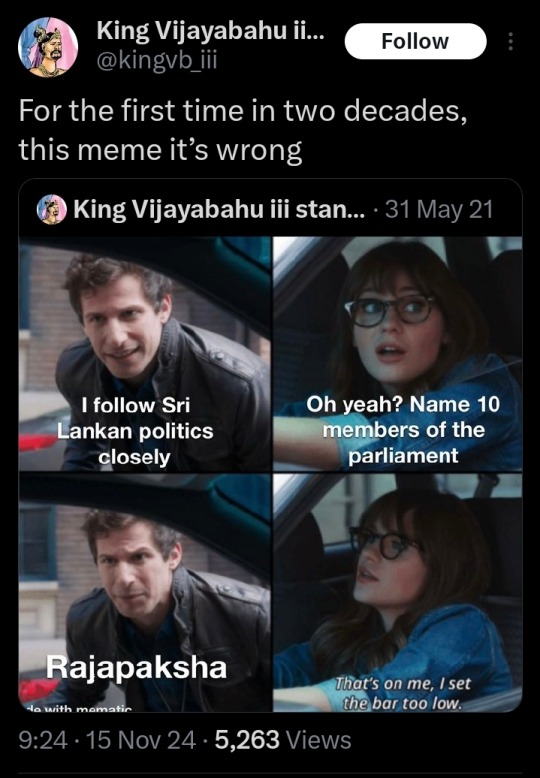
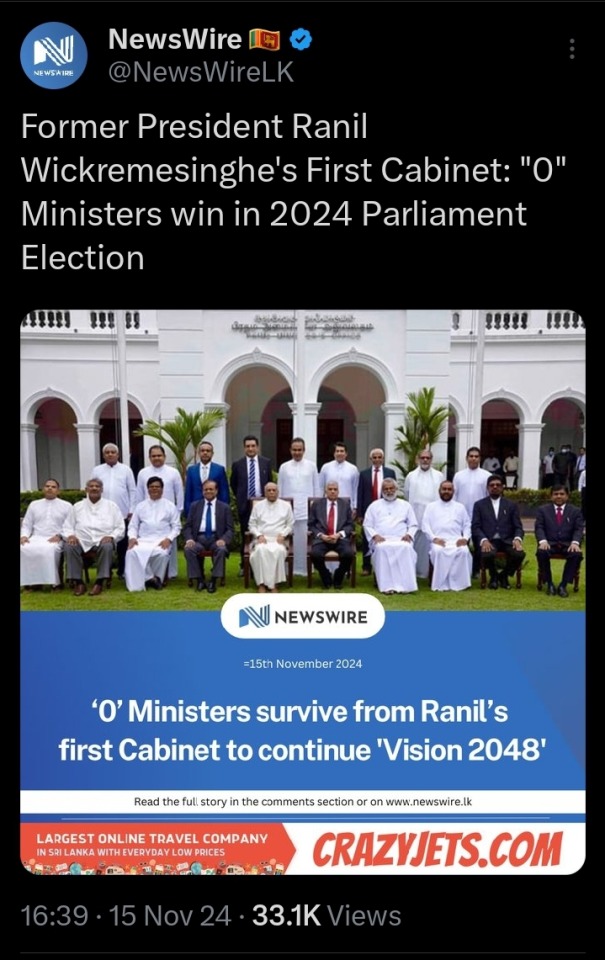
This is the illegitimate interim government we had for most of the last 18 months. We literally, physically, chased the Rajapaksas out of the country and this fucking demon set up a puppet government just so he could finally sit in that goddamn chair and be the despot he'd always dreamed of in exchange for letting them all come back. He's now gone. His entire circle is gone.
THEY ARE ALL FUCKING GONE.
In US terms, just imagine that, five years from now, when Trump's GOP has control of everything, the entire GOP and the worst of the Dems are all purged from Congress and Senate, the Green Party in control of all three branches of government under a pro-union left-wing President and an unmarried female LGBT rights activist Vice President, and the Dems reduced to barely 20% of the House.
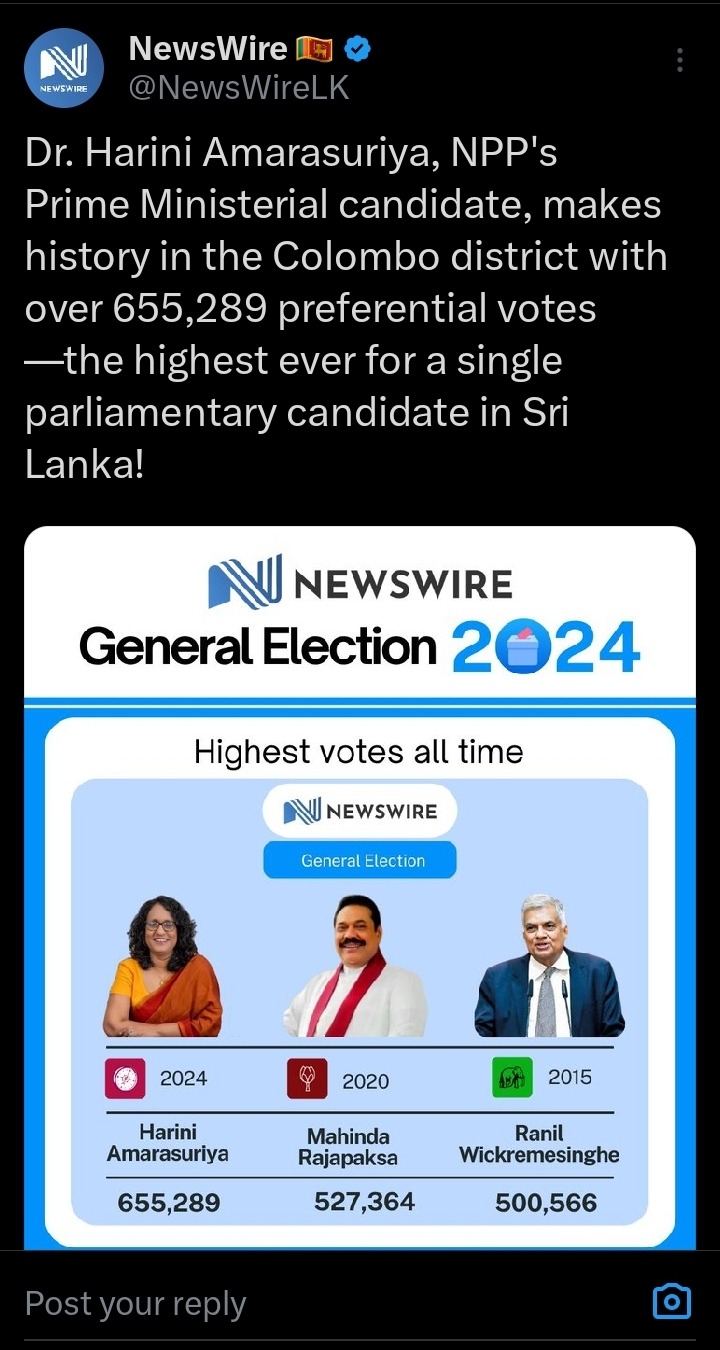
This is my anthropology professor. She joined politics from the small nascent leftist coalition to help keep the government accountable. She's now the Prime Minister and the most popular Parliamentary candidate in the nation's history. (Edit: She was knocked off first place by a dude in the final result. Boo.)
(On the other hand— the woman who helped make me a radical anarchist and literally helped write a book on political dissent and resistance...now is the state. Uh.)
But there are so many women in Parliament! We had the lowest female representation in a South Asian Parliament and some of them were from the list of seats reserved for parties rather than elected ones. Most were either anti-feminist conservative embarrassments, widows and daughters of elite politicians and neoliberal shills. It's still only an increase of a few percentage points (Edit: from the previous 5% to 10% in the final result!) but now we have elected academics, feminist advocates, activists! There Is a representative for Malaiyaha Tamils in the Central Province for the first time in history and it's a young woman! (Edit: now it's two female Malaiyaha MPS!!) This is the plantation community that still live in conditions closest to the slavery the British forced upon them two hundred years ago!
I'm like. Completely mindfucked. To be very very clear, the NPP coalition formed around the nucleus of the JVP that used to be communist but haven't been in 30 years, they're now just social democrats who are left of places like the US and UK, whose "left" is now center-right. They're only threatening to the Western mainstream media for some reason who can't stop bleating about how we have a "Marxist" government now. In reality, the actual chances for radical reform are still quite low, and the opportunity for further erosion is quite high with a super majority government regardless of affiliation.
On the other hand:
What the fuck.
Sometimes living through historical events is really damn amazing.
---
¹ Well, nearly. There are a few career politicians and a nepo baby but they aren't so bad either.
² Goddamn it, Baby Rajapaksa and Sri Lanka's answer to JD Vance have wormed their way in using the list of Constitutionally reserved party seats for non-elected members. FUCK the National List.
#five years ago i was working a news desk watching a band of violent ethnofascists known for genocide torture kidnappings and murder sweep in#and take control of the entire country#on the heels of the worst terrorist attack we've suffered that they orchestrated for this purpose#wondering how many of our colleagues would be safe#and watching the people that opposed them flee the country#i cannot tell you the enraging hopeless terror#and now#they're all gone#THEY'RE FUCKING GONE#sri lanka politics#sri lanka news#sri lanka protests#sri lankan parliamentary elections#sri lanka election 2024#anura kumara dissanayake#harini amarasuriya#feminism#leftism#world news#faith in humanity#power to the people#aragalaya#knee of huss#අරගලයට ජය!#අරගලයට ජය
3K notes
·
View notes
Text
On Thursday, Governor Tim Walz sat down for an interview with author Glennon Doyle, her partner Abby Wambach, and her sister Amanda Doyle during a taping of the We Can Do Hard Things podcast. The conversation touched on key election issues such as abortion and gun violence. However, midway through the podcast, the discussion shifted to queer youth, specifically transgender kids. Rather than shying away from the topic, Walz delivered a passionate, several-minute-long defense of LGBTQ+ rights, including transgender healthcare. He outlined his vision for the administration’s role in protecting these rights.
The question came from Abby Wambach, who turned to the topic after discussing Walz’ founding of a Gay-Straight Alliance at his high school in the mid-90s. Wambach asked, “Well, thank you Governor Walz so much for protecting even in the late ’90s queer kids. And so I have to ask, what will a Harris-Walz administration do to protect our queer kids today?”
Walz discussed positive legislative actions, such as codifying hate crime laws and increasing education, while emphasizing the importance of using his platform to advocate for LGBTQ+ rights. He then addressed the role of judges in safeguarding medical care for queer youth: “I also think what Abby, your point is on this, and I was just mentioning, we need to appoint judges who uphold the right to marriage, uphold the right to be who you are, making sure that’s the case, uphold the right to get the medical care that you need. We should not be naive. Those appointments are really, really important. I think that’s what the vice president is committed to.”
He didn’t stop there. Instead, he directly pivoted to calling out national anti-transgender attack ads which have flooded the airwaves across the United States, often airing besides NFL football games and other major sporting events. The Trump administration has spent upwards of $20 million on such ads, with outside organizations spending $80 million on various races.
“We see it now; the hate has shifted to the trans community. They see that as an opportunity. If you’re watching any sporting events right now, you see that Donald Trump’s closing arguments are to demonize a group of people for being who they are,” Walz said. He continued, “We’re out there trying to make the case that access to healthcare, a clean environment, manufacturing jobs, and keeping your local hospital open are what people are really concerned about. They’re running millions of dollars of ads demonizing folks who are just trying to live their lives.”
He emphasized the importance of representation and the impact of coming out, particularly for parents who may not have been exposed to LGBTQ+ identities and therefore might lack understanding. Walz pointed out, “Look, you’re reaching a lot of folks in hearing this, and for some people it’s not even out of malice and it’s not a pejorative, it’s out of ignorance. They maybe have not been around people. You’ve all seen this, however it takes you to get there, but I know it’s a little frustrating when you see folks have an epiphany when their child comes out to them.”
The strong defense of queer and trans youth came just one day after Kamala Harris participated in a Fox News interview with Brett Baier. Baier, who maintained a hostile tone throughout, pressed Harris on transgender issues with his second question. Rather than adopting the Republican framing, as some Democrats have done recently, Harris emphasized that the law requires medically necessary care for transgender inmates and criticized Trump for spending $20 million on ads focused on an issue far removed from the priorities of most Americans. Her response prompted Baier to quickly shift to another topic.
In back-to-back days, the Harris-Walz ticket has made it clear they will not back down on queer and trans rights, despite the barrage of anti-trans attack ads. This stance is likely reinforced by the repeated failure of similar ads in recent races, including Wisconsin’s Supreme Court election, legislative races in Pennsylvania and Virginia, Georgia’s Herschel Walker vs. Raphael Warnock election, Andy Beshear’s reelection in Kentucky, and the 2023 losses of 70% of Moms for Liberty and Project 1776 school board candidates across the United States. For transgender people, these interviews are likely a welcome relief after some wavering responses from other Democratic candidates in swing states.
#us politics#in support of an informed and engaged electorate#trans inclusion#protect trans lives#protect trans youth#Erin Reed
1K notes
·
View notes
Text
Disabilities that You Should Consider Representing in Your Writing More… part 1
[large text: Disabilities that You Should Consider Representing in Your Writing More… part 1]
While all disabilities are underrepresented in basically all sorts of media, it’s hard to not notice the trend in what disabilities make up the majority of representation. It’s especially visible when having a blog like this, where we can see what disabilities writers even consider including in their writing, and which ones never come up.
One in four people are disabled. With eight billion people alive it means there’s a lot of disabled people, and a lot of reasons why they are disabled in the first place - but this diversity is rarely represented, even on this blog, and anyone who has been following for a while has probably noticed that fact.
To be blunt: there are disabilities other than “amputee” and “(otherwise invisibly disabled) mobility aid user”. Does that mean that it’s wrong to write either of those? Of course not, and we don’t want to imply that it is. Does it mean that either of these have a ton of good representation? Hell no. Does it mean that when you are deciding on what to give your character, you should think beyond (or along! people can be multiply disabled!) just those two? Absolutely. Disability is a spectrum with thousands of things in it - don’t limit yourself for no reason and embrace the diversity that’s built into it instead.
This is, simply, a list of common disabilities. This is just a few of them, as this is part one of presumably many (or, at least three as of right now). By “common” we rather arbitrarily decided on “~1% or more” - so at least 1 in 100 people has the disabilities below, which is a lot. Featuring!: links that you should click, sources of the % that are mostly just medical reports and might be hard to read, and quick, very non-exhaustive explanations to give you a basic idea of what these are.
Intellectual disability (about 1.5%) Intellectual disability is a condition we have written about at length before. It’s a developmental disability that affects things such as conceptualization, language, problem-solving, or social and self-care skills. ID can exist on its own or be a part of another condition, like Down Syndrome, Congenital Iodine Deficiency, or Fetal Alcohol Spectrum Disorders. This post covers a lot of basic information that you might need. We have an intellectual disability tag that you can look through!
Cancer survivors (5.4% in the US, about 0.55% worldwide) A cancer survivor is a pretty self-explanatory term. There is a lot of types of cancer and some of them are very common while others are very rare, which makes this a very diverse category. Cancers also have different survival rates. While not every survivor will have disabling symptoms, they definitely happen. Most of the long-term side effects are related to chemotherapy, radiation, and other medication, especially if they happened in children. They can include all sorts of organ damage, osteoporosis, cognitive problems, sensory disabilities, infertility, and increased rate of other cancers. Other effects include removal of the affected area, such as an eye, a spleen, breasts, or the thyroid gland, each of which will have different outcomes. Cancer, and cancer treatments, can also result in PTSD.
Diabetes (about 8.5%, ~95% of that are type 2) Diabetes is a group of endocrine conditions that cause hyperglycemia (high blood sugar) for various reasons depending on the type. The vast majority of people have type 2 diabetes, which can cause fatigue, poor healing, or feeling thirsty or hungry. A diabetic person will use insulin when needed to help manage their blood sugar levels. There are many complications related to diabetes, from neuropathy, to retinopathy, and chronic kidney disease, and there's a lot of disabilities that coexist with diabetes in general! You might want to check out the #how to write type 1 diabetes tag by @type1diabetesinfandom!
Disabling vision loss (about 7.5%) Blindness and low vision are a spectrum, ranging from total blindness (around 10% of legally blind people) to mild visual impairment. Blindness can be caused by countless things, but cataracts, refractive errors, and glaucoma are the most common. While cataracts cause the person to have a clouded pupil (not the whole eye!) blind eyes usually look average, with strabismus or nystagmus being exceptions to that fairly often (but not always). Trauma isn't a common cause of blindness, and accidents are overrepresented in fiction. A blind person can use a white cane, a guide dog or horse, or both. Assistive solutions are important here, such as Braille, screenreaders, or magnifying glasses. We have a blindness tag that you can look through, and you might want to check out @blindbeta and @mimzy-writing-online.
Psoriasis (about 2-4%) Psoriasis is a chronic skin condition with multiple subtypes; it can cause intense itching, pain, and general discomfort, and often carries social stigma. It’s an autoimmune and non-contagious disability that affects the skin cells, resulting in raised patches of flaky skin covered with scales. It often (30%) leads to a related condition, psoriatic arthritis, which causes joint pain, tenderness, and fatigue, among other things.
Stroke survivors (0.5-1%) A stroke survivor is a person who has survived any kind of stroke (ischemic, hemorrhagic, etc.). While the specific symptoms often depend on the exact location on where the stroke happened, signs such as hemiplegia, slurred speech, vision problems, and cognitive changes are common in most survivors to some degree. When someone has a stroke as a baby, or before they are born, it can result in cerebral palsy, epilepsy, and other disabilities. We have a brain injury tag that you can look through!
Noonan Syndrome (about 0.1-1% - mild is 1%, severe 0.1%) Noonan Syndrome is a disability that is almost never mentioned in any context, but certainly not around the topic of writing disabled characters. It’s a congenital condition that can cause cardiomyopathy, chronic joint pain, hypermobility, short stature, facial differences such as ptosis, autism, and various lymphatic problems among other things. Some people with Noonan Syndrome might use mobility aids to help with their joint pain.
Hyperthyroidism (about 1.2%) Hyperthyroidism is a condition of the endocrine system caused by hormone overproduction that affects metabolism. It often results in irritability, weight loss, heat intolerance, tremors, mood swings, or insomnia. Undertreated hyperthyroidism has a rare, but extremely dangerous side effect associated with it called a thyroid storm, which can be fatal if untreated.
Hypothyroidism (>5%) Hypothyroidism is an endocrine condition just as hyperthyroidism is, and it causes somewhat opposite symptoms. Due to not producing enough thyroid hormones, it often causes fatigue, depression, hair loss, weight gain, and a frequent feeling of being cold. It’s often comorbid with other autoimmune disabilities, e.g. vitiligo, chronic autoimmune gastritis, and rheumatoid arthritis. Extreme hypothyroidism can also be potentially fatal because of a condition known as Myxedema coma (or “crisis”), which is also rare.
Deafblindness (about 0.2-2%) Being DeafBlind is often considered to be an extremely rare disability, but that’s not really the case. DeafBlindness on its own isn’t a diagnosis - it can be caused by a wide range of things, with CHARGE syndrome (congenital), Usher syndrome (born deaf, becomes blind later in life), congenital rubella, and age-related deafness and blindness being some of the most common reasons. DeafBlindness is a wide spectrum, the vast majority of DeafBlind people aren’t fully blind and deaf, and they can use various ways of communication. Some of these could be sign language (tactile or not), protactile, the deafblind manual, oral speech (aided by hearing aids or not), the Lorm alphabet, and more. You can learn more about assistive devices here! Despite what various media like to tell you, being DeafBlind isn’t a death sentence, and the DeafBlind community and culture are alive and thriving - especially since the start of the protactile movement. We have a DeafBlindness tag that you can look through!
It’s probably worth mentioning that we have received little to no asks in general for almost all the disabilities above, and it’s certainly not due to what mods answer for. Our best guess is that writers don’t realize how many options they have and just end up going for the same things over and over.
Only representing “cool” disabilities that are “not too much while having a particular look/aura/drama associated” isn’t what you should aim for. Disabled people just exist, and all of us deserve to be represented, including those whose disabilities aren’t your typical “cool design” or “character inspo”. Sometimes we are just regular people, with disabilities that are “boring” or “too much”, and don’t make for useful plot points.
mod Sasza (with huge thank yous to mod Sparrow, Rot, and Virus for their contributions with research and data!)
#mod sasza#disabled character ideas#writing guide#writing resources#writing help#writing advice#writeblr
2K notes
·
View notes
Text
Unless those writers ...
1. stop pretending their male OCs deserve more to exist (without love-interest trait being their main plot device to male characters) and not turning into androids. And their Tigerclaws and Neutralaisers won't suddenly show longer android heads instead.
(the worst thing is that other shows keep copying deceitful, non-real, glasses-or-purple-streaks friend syndrome. You can only appropriate bad stuff on the media, can't you.)
2. and not make a sidekick-joke, for-moke, talking-strange characters (also, another example for only bad things are appropriated from one another)
she might have a chance to turn over naturally and blend in correctly.
Overall, you won't expect much from those people when they thought that women don't count as regular people but as an exception in literature or media (worse: to serve a male gaze. Remember when April got an awkward bondage episode. That turned some viewers off and they didn't let their siblings watch that show.). Like, you really thought "we don't have enough CGI and money to make fictional women". You had women. You also had ready-models like the little girl, blind girl, but you never worked on them. Like, you also can't expect them to create something like Toph(avatar) and Karai(2003) when their archetypes were groundbreaking, innovative and while the first one was another disability representation for a strong blind girl (yes, Avatar had at least 3 of them).
Not gonna lie
I Am just venting, it’s fine if you don’t agree(I can’t back up every comment,just let me be mad, and dont take my bitterness seriously and focus on the positive things I mention )
In the end this is a rant of “why people don’t care about this specific thing I care about” so yea.. I am aware, move on if you don’t agree, thank you
It kinda pisses me off how people want characters like Casey, karai and even Monalisa (?) to come back but not Irma
While I see why (and yes I also want to see them) it also frustrate me that nobody cares about Irma ..
Casey has always been in the show, I get it, he is a fun character, a classic character and would be a nice addition for sure.
Karai got more presence thanks to 2012 and I am glad for that. and I want her in 2018 as well !
Monalisa…I don’t know man, she was cute in te 80s show . But she was just in one episode.. and let’s be honest she was just in 2012 to fill a love interest for Raphael (Need to mention that the Fandom manage to do content with Mona Lisa that I Actually enjoyed ! )so no, I don’t hate her and I wouldn’t mind her being part in the new show
I just feel people just want the same over and over again… we get new villains and people still whines about shredder (granted , he is going to be in the show )
It just bug me that Irma isn’t mentioned as much cause she didn’t got a chance in 2012,(or the live actions movies.. or 2003…etc) otherwise I am sure a lot of people would be interested in her coming back… i guess my problem it’s that people keep asking for the same characters and makes me feel that Irma won’t get a spot ..
#mysogny#tmnt#2012 main issue was that women's main trait of being there is to be a love affection for tmnt; that was their problem with Irma they could#have proved otherwise but she fell victim to the poor writing with their choice to insult and fool the majority of their audience#a fan didn't want a love interest so they suggested to sacrifice a female representation in order to avoid another 1-second-immediate-lust#from tmnt show from tmnt boys#imagine that one can only allowed to exist as a love affection to the fictional male characters and be there for a male gaze#tmnt 2003 was vicious and excluding its previous concerpart but at least it brought freshness and amazing female characters and stories#to the mix it was true to its material(about “true to material” I don't really want every tmnt iteration to be true to material as it would#be repetitive rather than something new and innovative. If DNA doesn't get refreshed it gets unhealty;say. I don't really want evey#tmnt iteration to be true to material as it might get less interesting; repetitive or predictable.)#edit: for the other media franchises copying and repeating bad tropes and representation. Shame
18 notes
·
View notes
Text
Forgetting your character is disabled isn't a "good representation" flex: Writing Disability Quick Tips
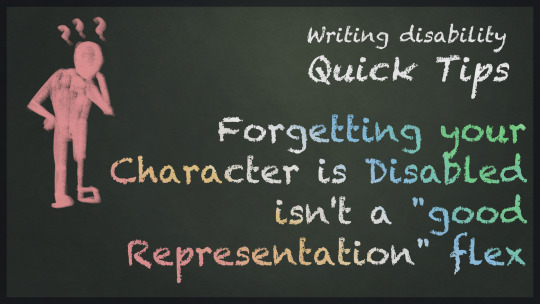
[ID: An image with “Writing Disability quick tips: Forgetting your character is disabled isn't a good representation flex” written in chalk the colour of the disability pride flag, from left to right, red, yellow, white, blue and green. Beside the text is a poorly drawn man in red chalk looking down confused at his leg, one is drawn normally, the other is drawn to resemble a basic prosthetic. He has question marks above his head. /End ID]
For a while, I was involved in the booktok and Tik Tok writing communities, specifically parts of the community focused on more diverse books and authors. During this time, I noticed a reoccurring pattern when people were highlighting stories featuring disabled characters, or even promoting their own books, and that was how often people would say "I kind of forget they have [insert disability here] because they're such a badass."
The intention behind this statement is (usually) good, with people trying to show that their disabled characters are self-sufficient and don't fall into the tired old sad/helpless disabled person trope, however, you can - and very much should - do that without erasing your character's disability. If you find yourself forgetting your character is disabled, or your beta and pre-release readers are commenting about forgetting it, then there's a good chance that's exactly what you've done - and as a disabled person myself, if I see that statement being used in your marketing in particular, it's a giant red flag and a sure fire way to make sure I give the book in question a skip.
Remember, disabilities (especially major ones) are a part of your character's identity, and they're important regardless of the character's personal relationship with it. Even if your character doesn't specifically identify with the label of disabled or doesn't really care that much, it's should still be impacting their daily life, even in small ways. If you're finding yourself forgetting about a major part of your character's identity, it might be a good idea to check and make sure their disability is having an impact on the character.
I see this comment most often with amputee characters, and to me, it's a pretty consistently good indication that the author has treated their character's prosthetic as a cure rather than the mobility aid it is. It's far from unique to amputees, mind you (I talked about this a lot when I was discussing the character of Toph from Avatar), but it's when I tend to see it the most. Remember that mobility aids and other forms of assistive technology and assistive magic (if it's a fantasy story) are just that: they're aids, they assist, they shouldn't be cures.
Of course, this wasn't unique to Booktok, I've seen it on nearly every other social media site with a writing and book-focused community at some point, but Tik Tok was just where I spent the most time and it seems to be where I see the most people specifically gloating about it.
#Writing disability with Cy Cyborg#Quick tips#Disability#Disabled#Disability Representation#Writing Disability#Writing#Writeblr#Authors#Creators#Writing Advice#Disabled Characters#On Writing#book marketing
1K notes
·
View notes
Text
my biggest personal byler proof is just how much they remind me of my first queer relationship before we started dating
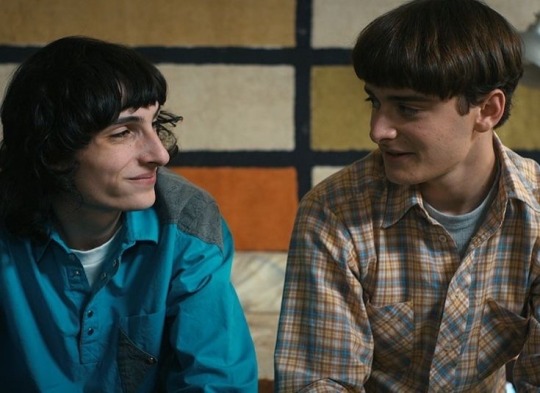
queer characters are incredibly easy to fuck over, even without intention. often spelled out or intensely sexualised to prevent misunderstandings for a mostly heterosexual audience, queer storylines are exaggerated and thus become unrealistic.
stranger things doesn’t do that with its queer characters. take robin:


this scene is done beautifully. genuinely beautifully.
robin admits her feelings for tammy and how she locked them away, not just because tammy didn’t like her back, but because she is a queer girl in the 80s. her feelings are unnatural and unwelcome in hawkins.
steve’s acceptance of robin in this scene makes people forget how horrifically this could have ended:


As for Mike and Will
you don’t write a perfect representation of mutual teenage queer pining between childhood friends by accident.
queer pining is quiet and suppressed (especially for young people and ESPECIALLY in the 80s). It is unhealthy to suppress these feelings the way queer people tend to, it’s beyond the typical “secret crushes” straight people experience. queer pining can destroy people when they’re not supported.



through robins character, and wills arc in season four, we can see clearly the duffer brothers understand the nature of queer love, and wish to do it justice.
will ending up with some random last minute jock is unrealistic and does not do his character justice.
mike staying in an insecure relationship, constantly worried his girlfriend will grow out of him and leave him, rather than accepting will’s unconditional love for him, accepting his own love for will and letting himself be who he is, does not do his character justice.
even so, if they tried to set up byler in a way that would come across clear to the GA, it would, by default, become unrealistic and unrepresentative.
neither are yet able to admit to close friends and family they are queer, but they are supposed to convey that part of themselves to an (understandably) dense/heteronormative mainstream audience?
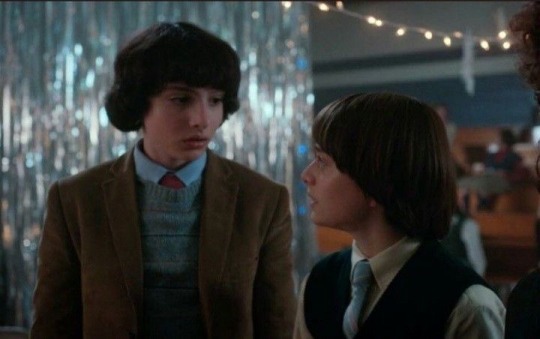
queer teenage love is not the same as straight teenage love, it doesn’t shock me that the majority of the audience isn’t able to pick up on byler beyond wills feelings, and they’re not supposed to.
we all say what we see, they don’t see the queer love brewing because they’ve never experienced it, they’ve never been mike and they’ve never been will. they’ve been max and lucas and nancy, steve, jonathan, etc etc
doesn’t make their heteronormative perspective accurate, they are just straight. they understand will and mike the same they do lucas and dustin. mike says they are friends, they have no reason to think otherwise. they do not know what queer love actually looks like, the duffer brothers do. the actors do. we do.
you are not delusional. you are queer.
if byler was widely agreed upon at this point in the story, it would not be an accurate representation of queer romance. that is the point.
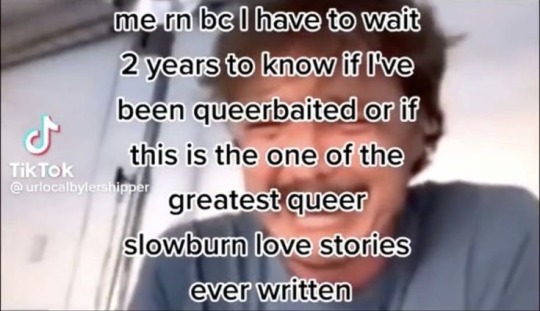
my moneys on the latter and they better get every award for it.
763 notes
·
View notes
Note
What criticisms do you have of direct democracy? Assuming it’s communist, as well as having laws about what can and can’t be voted on such as “no killing/disenfranchising the (blank) people” and “no voting for capitalism” (the actual laws would be longer but I don’t want to write a long paragraph about how you’re not allowed to vote for fascism in a fake direct democratic society)
While it's fine in the abstract, in practice it's exceedingly slow and inefficient - being a political representative in a council is a full-time job, and if every single decision made is subject to the popular vote, then both 1) polling itself takes considerably longer; and 2) the necessary amount of education and discussion needed to be carried out prior to a proper vote is much larger: rather than simply summarising the issue and presenting key facts to council members, a massive public education campaign now has to be carried out every time a new, say, regulatory standard for storm drains, is decided upon.
Which leads us into the other main criticism - in practice, people don't *want* to have to deliberate and vote on canal works every day. Either voting is mandatory, in which caee annoyed, disinterested voters are just randomly choosing without much thought; or voting is optional, and the vast majority of people aren't actually being represented in any given issue, because it's solely decided by whichever segment are motivated enough to get a campaign going. Here, delegating the business of understanding and making decisions on random organisational matters *does* genuinely lead to a more representative and democratic outcome.
Fundamentally, what we're talking about is division of labour - a factory is more efficient when each worker doesn't have to make a complete product by themselves. Bureaucratic and administrative work *is* still work, regardless of its political character. Again to bring up division of labour, in industrial society the operation of a single factory relies upon the co-operation of electrical substations next-door, power plants the next town over, logistics offices in the provincial capital, resources developed and extracted on the other side of the country, and the entire nation's collaboration on a unified economic plan; it is something that can only really be directed by a central authority that can collect and collate massive amounts of data to produce new courses of action - to try to operate such a body based entirely on direct democracy is, beyond any other considerations, both impractical and undesirable.
This is not to say there doesn't exist great political drive and passion among the masses, nor that they have no interest in the political process and their representation - but not everyone actually applies to be a council delegate during elections, because most people are fine with the council work itself being handled by a trusted representative.
In practice, the way communists have managed these matters is democratic centralis' - here are a few graphics explaining how representative democracy is carried out on the local level in China, as an example:


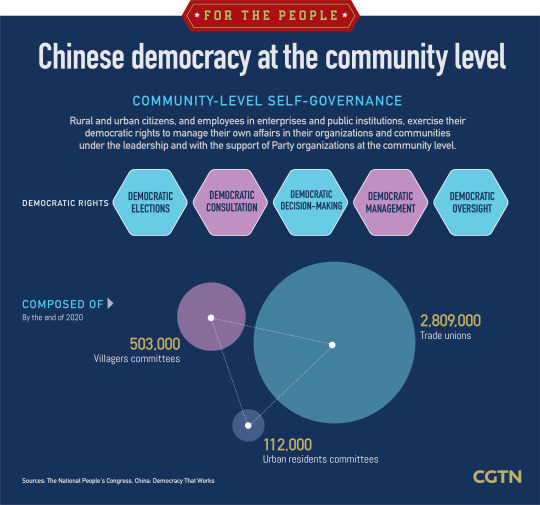


406 notes
·
View notes
Text

I gotcha, dawg.
Well, there's lots I could say here, but perhaps the easiest thing to address is you yourself saying you want to remain anonymous so as not to get "in trouble" - I presume from Democrat Tumblr users(?)
In a democracy, you shouldn't have to be frightened to say who you voted for or the concerns you have about an election.
This present climate of fear of saying the wrong thing or using the wrong pronoun or is one of the things I find most refreshing about the Trump train: he's the only mainstream politician in America openly pushing back against Wokeness - which is a 21st rebranding of Political Correctness - which is in turn a perversion of the word "correct" to mean "in line with present party policy" that first appears in Chairman Mao's Little Red Book. Also the only U.S. mainstream politician against the present transgender madness (the castration, sterilization and brainwashing of children) and open borders. These are very commonsense positions necessary for any nation's survival that have massively widespread support amongst the majority of ordinary people, but no-one else in government was doing anything to represent them.
It took an outsider not in the pocket of the donors who own the arms companies and the oil companies and the media companies and the pharmaceutical companies and so on to actually push back against the status quo and have a thick-enough skin and good humour to not back down. That's who Trump is. Yes he's a flawed and sometimes buffoonish-like figure, but the fact that he is a bullheaded businessman has meant he's been able to look at America as an enterprise in decline that needs fixing and overhauling to make "great" again, and just charge through the red tape to do whatever actually needs doing.
The first Trump presidency was a time of democrats and other hysterical left-wing activists burning, looting and rioting in America, but on the global stage it was a time of relative peace: Trump invaded no country or started any new wars (the way Biden did only 6 weeks into his presidency), and there's no reason to think he will this time round either. He did nothing to incite the very silly January 6th free tour of the Capitol Building, but for telling people to be peaceful and go home he - the sitting president - was silenced and booted from every social media platform.
So much was made this election over abortion rights - and I myself have always been pro-choice - but he didn't (and has repeatedly stated he won't) ban abortion but simply made it an issue that individual states can decide for themselves, which makes sense given the range of opinions on that matter in different parts of the country. It's probably my least favourite aspect of his policies, but the fact that such a relatively trivial matter was placed front and center in the Democrats' campaign and all that the hosts of The View and other female media dross could talk about for a year just tells you how shockingly debased and distracted political discourse has become in the west.
I could go on, but rather than addressing one claim after another, I would suggest you simply make a list of all the things you can recall the media and the democrats claiming Trump has said or done, and then go look up the original unedited videos that the out of context soundbites have been taken from, and then ask yourself whether what they presented you with seems a fair and unbiased representation of any individual, and whether it seems reasonable to trust the people who relentlessly deceived you in this way. That would do more to broaden your point of view than anything I could say.
258 notes
·
View notes
Text
Ok, so I wanted to do a deeper dive into this particular passage of Good Omens:
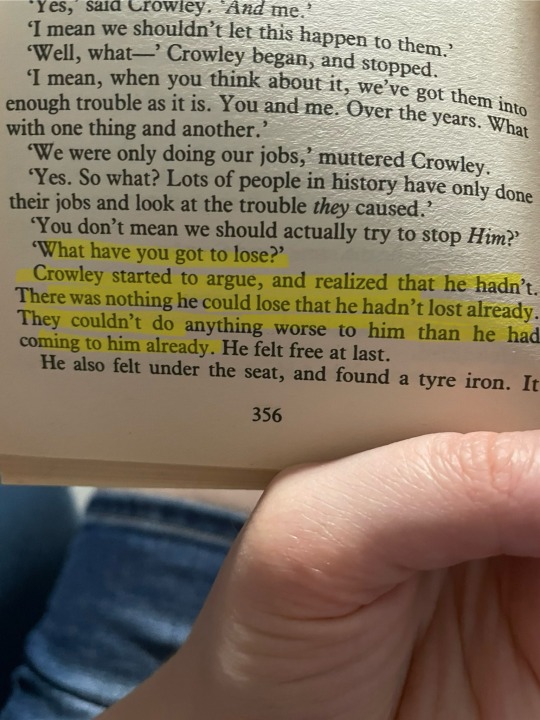
For context, this is at the climax of the book, they’re at Tadfield airbase, the horsemen have been dispensed with, Aziraphale has his body back, and Satan is about to claw his way out of the pit.
In most of the proceeding chapters involving Crowley it talks a lot about how scared Crowley is. He is very scared of Hell.
One could perhaps say maybe he is scared of them due to The Arrangement, but that is never explicitly stated. I think it has more to do with Hell is bad, and Crowley has spent the majority of the book being yelled at by some entity through the radio or TV telling him how he’s going to be in super amounts of trouble when they get their hands on him. He is just scared of what will happen. When he comes across the book shop burning he doesn’t cry for his lost friend. He curses Aziraphale, and I think it’s because the one person who may have been able to keep him safe and protected from Hell is now gone.
So when he thinks to himself (as shown in the above screen shot) that there is now nothing left for him to lose, this is why I never thought (upon reading the book the first time that is) there were any romantic feelings between him and Aziraphale. I know that technically he had already lost Aziraphale. But by this point he was back again, and back in his body. If there truly were romantic thoughts between them surely the idea of losing him again would come up.
I have read so much fanfiction, some old, some new, and what they all have in common is the detailed inner monologue of Crowley’s turmoil over his feelings for Aziraphale and how he doesn’t feel like he can act on them. In the book we get nothing of the sort, from either character. Even when they’re separated there is hardly ever any description of them thinking of the other except occasionally to frame a short reference to something. Reading the book I never got the impression that there was anything more than two ethereal beings spending time and proximity to each other and doing work for each other for no other reason than they’re essentially a bit lazy.
I think they’re only queer coded for the fact that there’s the line about Aziraphale appearing “gayer than a tree full of monkeys on nitric oxide”, and Crowley is, well, very Freddie Mercury coded. Them being seen as gay together and all the gay slurs in the awful racist scenes of Aziraphale body hopping about in culturally indigenous people after the bookshop fire has more to do with the very typical 80’s/90’s trope of “being gay = comedy gold”, than them actually being together romantically.
I think the reason why they were shipped so much after the publication however is for the same reason we ship so many male couples (or female couple) in modern media, why we’ve always shipped them: because of the complete and horrid lack there of, of proper queer representation.
If you’ve ever seen the magnificent Russel T Davies TV series It’s a Sin, there is a wonderful scene where the character Ash starts a job in a school library and the headmaster asks him to go through all the books and find any book that has queer love scenes so they can be removed. Ash then gives a most beautiful and impassioned speech (albeit it turns out the speech is just in his head) of how there is nothing. Absolutely nothing. There is nothing to the point where they are nonexistent. They are invisible. They are not seen. (Or like, something to that effect. I tell you though, it’s bloody brilliant).
So I think that’s rather the point really. You have two iconic characters, albeit supporting bit characters practically, and I think a lot of our minds automatically get drawn to wanting to put them together because of the sheer lack of queer couples. People have been doing it for years from Frodo and Sam, to Harry Potter and Draco (or Ron I guess), to Sherlock and Watson (even before the Benedict Cumberbatch show. Also as an aside let’s not get into how obsessed people got about Sherlock Holmes back in the day when those books were first published. The obsession was the reason Doyle killed the character off the in first place, then after getting letters from people telling him they were literally going to kill themselves, the reasons why he resurrected him again. Don’t tell us that modern day nerds are weird and obsessive. We’ve ALWAYS been like this).
It’s for this reason why queer representation is so god damn important. Why I still support the idea of Good Omens season 3. Because regardless of how the characters were originally intending to be represented in the book, it’s very clear now that they are so much more than “Just friends”. And we NEED that! Whether you subscribe to the idea that they will be physically intimate with each other, the fact remains is they love each other. They love each other immensely. And that comes from years of Terry Pratchett (and the other guy) accepting that canon and telling fans that it’s true. Because Michael Sheen made a choice and held a belief about how he saw his character and then David Tennant followed suit. That literally tens of thousands of fanfiction writers have decided the same.
So that’s my take. I don’t think loving each other was ever intended that way in the book, but in the last 35 years their story has morphed into the ineffable husbands that we now know.
What are your thoughts? Have I rambled on long enough to make any sense? Do you agree? Have I missed something completely obvious and gotten it all wrong? Keen to hear thoughts.
#good omens#book omens#crowley#aziraphale#ineffable husbands#aziracrow#good omens fandom#crowley x arizaphale#david tennant#Michael Sheen#Terry Pratchett#fire neil gaiman#good omens discussions
255 notes
·
View notes
Note
i enjoy ur bird abode thoughts! I was a genuine enjoyer of the show when it was airing, I’m no die hard fan though and love to see ppls personal takes on the overall story/plot. Im curious if you also would agree or have any thoughts on the impacts The Mouse’s cancellation had on the shows ability to be more than it was? srry im not super eloquent with my words, but basically ur response to that ask got me wondering if part of the reason the show like genuinely wasnt all that ground breaking or unique in the end plot wise (other than the villain faces consequences in the end ig) as far as YA/Teen animation goes, was because of The Mouse’s inability to let the writers flesh out the show before gutting it? i have a negative bias toward The Mouse franchise and obviously dont know anything about how writing a show under the eyes of a franchise that big would work, its just smth that rattles around in my head and wanna know what u think!
Well to an extent, but I think it's much more the effect the studio had on how the owl house started out as rather than it not getting a full season at the end - It didn't escape my noticed that the show was initially announced as being a "horror comedy" when it doesn't really seem like either, especially by the second season, and yeah, the original pitch bible is obviously aiming for that much more than the show proper is as it goes along (and is honestly seems quite a bit more funny, weird, and dark, with an overarching plotline about a giant bug being used to religiously suppress people, eda able to cure her curse by killing luz, and one of the major characters being a teen boy awoken from a sleeping curse who ends up being a weird little bigot because he's from the 13th century, among other things)
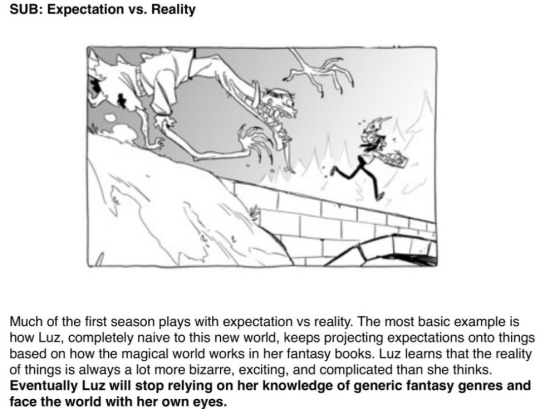
(side note, i just noticed they actually specifically describe the thing i assumed the show was gonna be about here. huh.) but ultimately the bulk of the show that was actually made seems very influenced by a writing team that was genuinely interested in making a tropey YA fantasy story rather than just being mandated to. I mean even in what aired you can see the show sort of settle in ways that feel less like studio interference and more like, you know, art students creating their ideal fantasy show, like how King is clearly Eda's roommate who's funny because he looks like and sounds like a little dog despite being an adult man at the beginning but by the end they've made him her adopted sad backstory son who's explicitly a child. While I think a third season would have made the show as it existed better, because they clearly didn't get to finish the plot they wanted to (frankly to the point where some major aspects of the show are a bit confusing, I'm still not sure what a grimwalker is), I don't really fault the show for that but also don't think that hypothetical season (which pretty clearly would have been mostly about the magic school teens going to normal school) would suddenly flip around into something that I personally found interesting and subversive. Nor should it, really; again, it being Queernorm Harry Potter thing is clearly the intended appeal of the show, it's not really a flaw but just not a genre I'm personally interested in when compared to what I initially expected the show to be.
HOWEVER I will say they robbed little weird girls of their representation and that can't be forgiven
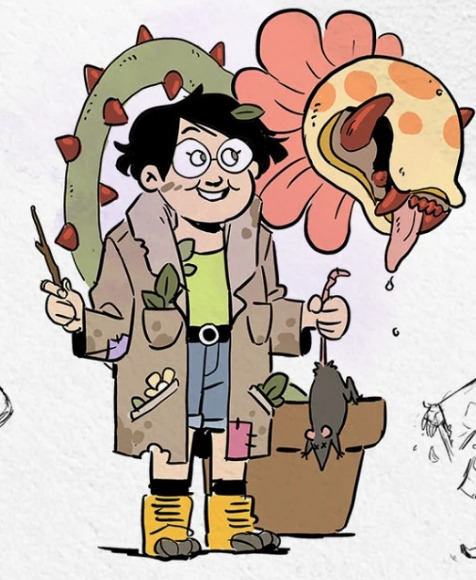
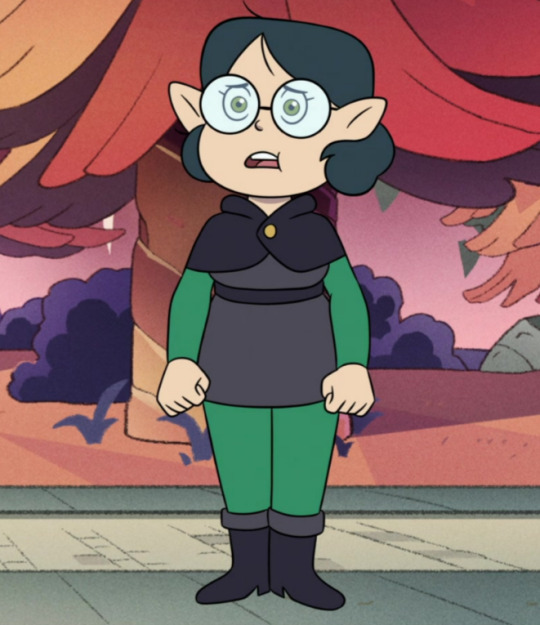
#does this not make sense or sound mean. I'm not trying to sound mean. it's fine. you'll like it if queernorm magic school sounds appealing#which it will to many many people#I think what happened is that they were studio mandated to make some changes that weakened the initial idea#but then the writers#all again tumblr art students#were just as interested if not more in making their own played entirely straight YA magic school thing#probably more than i even grasp as according to a friend who loves the show there's like.#cassandra claire harry potter fanfic references I'm not picking up on
185 notes
·
View notes
Text
the performative accusation that shipping zutara (and occasionally this criticism is levied at jinko/zukka) is colonialist apologism has been addressed in some excellent posts, explaining the inaccuracies and problematic implications of this logic far better than i ever could - like this post and this one and this one and this one and this one.
and i know this topic has been talked about to death, but if you could indulge my contribution for a moment, i just find it interesting how this sentiment results from the cognitive dissonance of atla fans being unable to reconcile with the idea of their favorite show's political beliefs not lining up with their own.
atla is a largely philosophical children's show that at its core deals with themes of love, redemption, and destiny vs. free-will. atla examines these themes through an anti-colonalist, anti-imperalist lens that deconstructs the idea of racial divisiveness and the idea that people of different ethnicities are inherently different. this is message is pretty explicitly stated by guru pathik:
Guru Pathik: "The greatest illusion of this world is the illusion of separation. Things you think are separate and different are actually one and the same." Aang: "Like the four nations?" Guru Pathik: "Yes. We are all one people. But we live as if divided."
and also by uncle iroh:
"It is important to draw wisdom from many different places. If you take it from only one place, it becomes rigid and stale. Understanding others, the other elements and the other nations will help you become whole."
this theme is developed across three full seasons, with the crux of this message culminating in zuko's friendships with the gaang - despite coming from different nationalities and different backgrounds, they have all had their own experiences being hurt by the fire nation and work together to take down the oppressive fire nation government. the question of destiny vs. free will is also explored through zuko's character - despite starting off as an antagonist, he develops into a symbolic representation of how the fire nation's oppression hurts its own citizens. he unlearns the fire nation's imperialist propaganda while simultaneously unlearning his father's abuse. rather than following misguided beliefs of what he thought his destiny was as the heir to the throne, instead he forges his own path.
thus, to claim that zuko can never form a deep and meaningful relationship with any of the gaang because of his nationality goes unequivocally against the themes of the show. and a major part of this is because these are fictional characters being used to analyze different theoretical questions within the show and in some cases, are used as symbolic representations of different philosophical ideas - their friendships and their character arcs serve a purpose within the text that cannot be easily transcribed onto real-life dynamics between people.
it's illogical to criticize fans who are choosing to understand atla at the level of the themes that are presented by the text - who are interested in exploring similar philosophical questions brought up by the show through the context of relationships.
if you don't like the themes of forgiveness and redemption that atla explores, your criticism should be aimed at the writing of the show itself rather than other fans. because you are giving far more thought to the "implications" of a close friendship or romantic relationship between someone from an imperalist nation and someone from an oppressed nation than the writers ever did. (and if you fall in this camp of people, i would hope you wouldn't be reblogging fanart of zuko and the gaang together while simultaneously claiming zuko could can never escape the sins of his ancestors and can never form a deep relationship based on trust and intimacy with katara or sokka or jin - because that would just be hypocritical).
and as a side note, people seem to apply this flawed logic to zutara far more than other ships solely because the show spends the most time exploring the complicated nature of fire nation imperalism in the interactions between zuko and katara in the latter half of b3. this is because they've been juxtapositioned against each other and paralleled with aang since the beginning of the show in ways that toph, sokka, and suki are not, who have mostly been used to examine different themes. there simply isn't enough time to explore these complicated themes with all the other characters, even if they theoretically exist in zuko’s dynamics with these characters, so the writers focus the most on zuko's relationships with katara and aang, and these relationships are given far more narrative weight, so have more content to criticize. but zuko and katara also canonically become friends by the end of the show. if you want to discount the existence of their friendship, claiming that it will always be tainted by the fire nation's oppression regardless of what is shown in the text, then you also have to discount zuko's friendships with aang, suki, toph, and sokka - because even if this isn't shown as a permanent barrier to their friendships in the show, it’s also not shown as a permanent barrier to his friendship with katara. if your logic is solely based on the idea that a person's identity in a relationship as a colonizer or a victim is fixed and unchanging regardless of character development, this would apply to zuko's friendships with everyone else as well.
#zuko#katara#zutara#i have seen people say that the zutara dynamic makes them personally uncomfortable and that's fine - to each their own!#but it's hypocritical to only dislike zuko's relationship with katara while simultaneously exalting his friendships w aang or toph or sokka#just because the show doesn’t take as much time to explore these issues with other characters doesn’t mean the same dynamic doesn’t apply#my post#my meta
293 notes
·
View notes
Text

So this is a great example of a fundamental misunderstanding of history!
In 1948, the land that is now Israel/Palestine was controlled by the British Empire. It wasn't owned by either Jews or Arabs in its entirety, and additionally there had not been an independent state in the land since the Jewish Kingdom of Judah was conquered by the Roman Empire in 63 CE.
Secondly, the pre-State of Israel agreed to a UN partition partition plan in 1947 that guaranteed an Arab state and Jewish state in the borders shown on the map below:
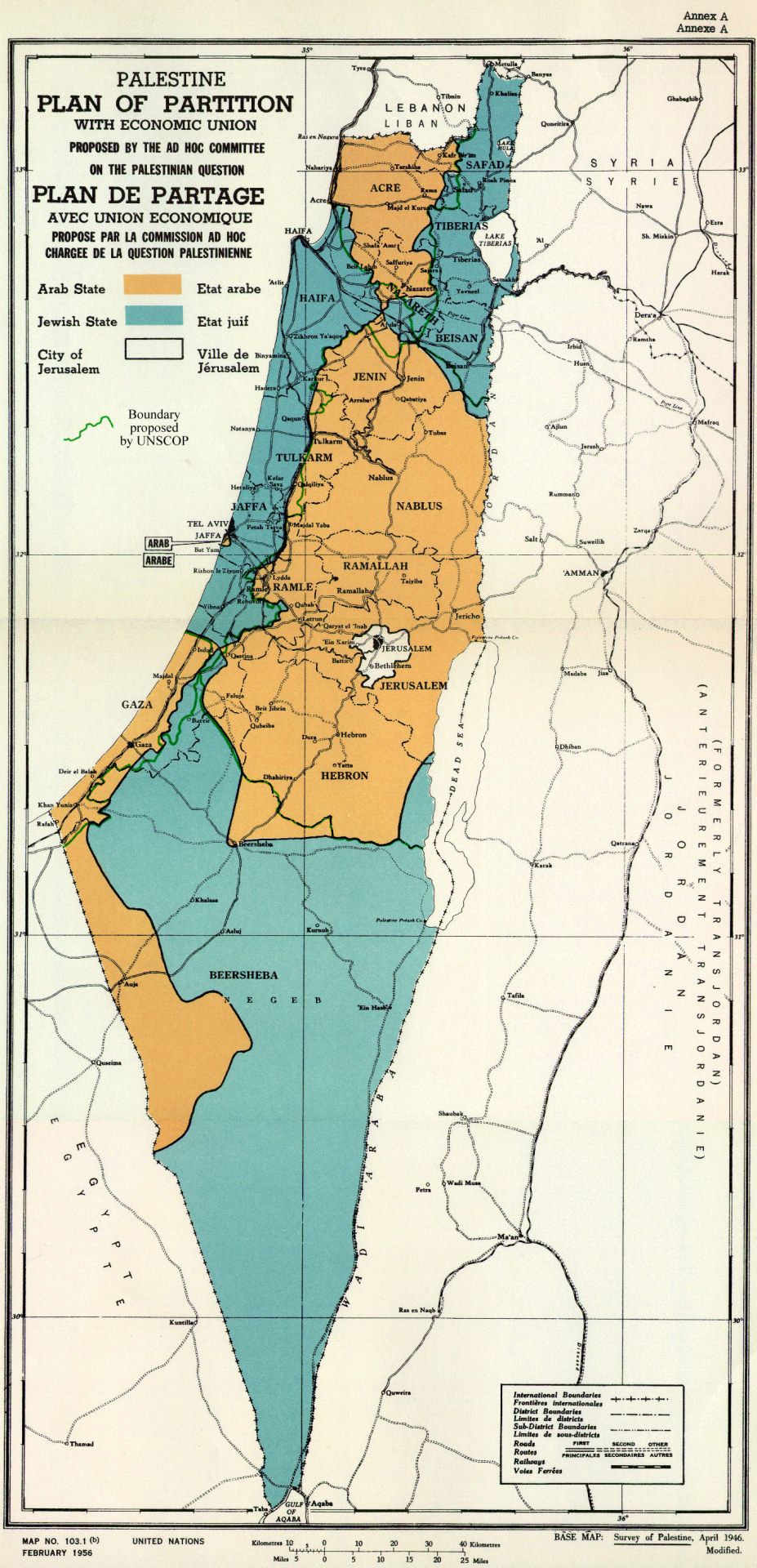
On May 14, the State Of Israel declared independence within the borders shown in blue on the map. Rather than accepting an Arab state and a Jewish state, the armies of surrounding Arab states, including Jordan, Egypt, Syria, Iraq, attacked the nascent State Of Israel with the intention to destroy it in favor of an Arab state in the entirety of the former British Mandate of Palestine.
Before it was attacked, the State Of Israel had no intention to fight the Arab states or hurt the Arabs living in the borders of Israel. This is shown clearly in Israel's Declaration of Independence.
WE APPEAL — in the very midst of the onslaught launched against us now for months — to the Arab inhabitants of the State of Israel to preserve peace and participate in the upbuilding of the State on the basis of full and equal citizenship and due representation in all its provisional and permanent institutions. WE EXTEND our hand to all neighboring states and their peoples in an offer of peace and good neighborliness, and appeal to them to establish bonds of cooperation and mutual help with the sovereign Jewish people settled in its own land. The State of Israel is prepared to do its share in a common effort for the advancement of the entire Middle East.
Direct quotes from Israel's Declaration Of Independence.
However, during the 1948 War* the majority Palestinians living in Israel fled out of fear or were kicked out. Similarly, all of the Jews living in Judea & Samaria/the West Bank were kicked out by the Jordanian army.
Massacres were committed by both sides during the war, including the Deir Yassin massacre, in which many Palestinians were killed by right-wing Zionist militias and the Gush Etzion massacre in which many Jews were killed by the Jordanian army.
Both Palestinians and Jews had to flee/were kicked out of places in which they had resided for centuries - some examples being Lydda/Lod (for Palestinians) the Old City of Jerusalem, specifically the Jewish quarter which was later looted by the Jordanian army (for Jews).
Israel ended up winning the war -- and winning more territory than had originally been given to them. This was what the map looked like after the Armistice Agreement at the end of the 1948 war:

At the end of the war, Egypt occupied Gaza and Jordan occupied Judea & Samaria/the West Bank. There was no Palestinian state.
During and in the aftermath of the 1948 War, 700,000 Palestinians became refugees from Israel, and between 17,000 and 40,000 Jews became refugees from Judea & Samaria/the West Bank and Gaza, and about 1 million Jews became refugees from the rest of the SWANA region.
This post is in no way an exhaustive or authoritative history, but it shows clearly the history of the 1948 War is much more complicated than "forcefully took that land from them".
If you would like me to make a post about history pre-1948 I can do that as well.
*I chose to call this war the 1948 war so as to be impartial as possible. Other names used include the 1948 Arab-Israeli War, Israel's War Of Independence, and the 1948 Palestine War.
Keep reading below the cut for sources.
SOURCES:
#jumblr#jewish#chana talks#judaism#am yisrael chai#israel#i stand with israel#antisemitism#i/p#i/p conflict#jordan#egypt#gaza#palestine
187 notes
·
View notes
Text
I also think a lot of the Shiori Hate™ comes from her portrayal in Adolescence. Now, while I understand the conclusions that peoole come to based on this, I don't think it's entirely fair to Shiori's character as it doesn't really take into consideration the context of Adolescence and the role that Shiori plays in the narrative.
Adolescence of Utena (regardless of whether you interpret it as a direct sequel, a standalone reimagining, or something in-between) clearly serves as a synopsis of the events of the series, just with details cut-out, changed, or condensed to support the movie's length. For example, the Student Council arc is instead condensed into a single duel with Saionji, as is the Apocalypse arc with Juri.
I would argue that Movie!Shiori, rather than being 100% representative of the real Shiori, is instead meant to serve as a stand-in for the Black Rose Duelists as a collective. The Black Rose Arc in RGU is vital in showing how victims of the system are turned against one another in order to keep them distracted from their real oppressors (this idea is also embodied in the series by Nanami, who is missing from the movie). It also demonstrates several examples of how Ohtori Academy's patriarchal system has fostered unhealthy and toxic relationships between various characters. I believe that Shiori is meant to serve as the embodiment of these themes in Adolescence of Utena, in lieu of the Black Rose Arc.
In Adolescence, Shiori has a very unhealthy and toxic relationship with Juri. She wants to force Juri to be her prince forever, so that she, by extension, can gain power within the system. This is in much the same way that the Black Rose Duelists make their respective student council members into rose brides by forcefully pulling swords from their chests, all in order to gain power and agency within the system. Shiori also plays a major antagonistic role in the movie as she is the one who exposes Anthy as the one who "killed" Akio, and she later attempts to stop Anthy from escaping to the real world (its a big mistake to think you're the only one who can turn into a car). I would argue that this represents how the Black Rose Duelists are convinced by Mikage to kill the Rose Bride, believing that it will solve their problems- which in itself represents how victims of the system are turned against other victims in order to keep them from rising up against the real oppressors. I think that this shows how Shiori's motivations within the movie more closely align with the general motivations of the Black Rose Duelists as a whole, rather than her original motivations within the series (which are worthy of an analysis all on their own).
-
Tl;dr Movie!Shiori shouldn't be taken as a true 1:1 representation of Shiori's character, because she actually represents the entire Black Rose Arc and all its themes as a whole, just in condensed movie format.
#yet again. no.1 toxic utena girlies defender until the day i die#i have a lot of thoughts and feelings about shiori she means so much to me#maybe my 4th favourite rgu character#shiori takatsuki#rgu#revolutionary girl utena#sku#shoujo kakumei utena#adolescence of utena#utena analysis#rgu analysis#black rose arc
318 notes
·
View notes